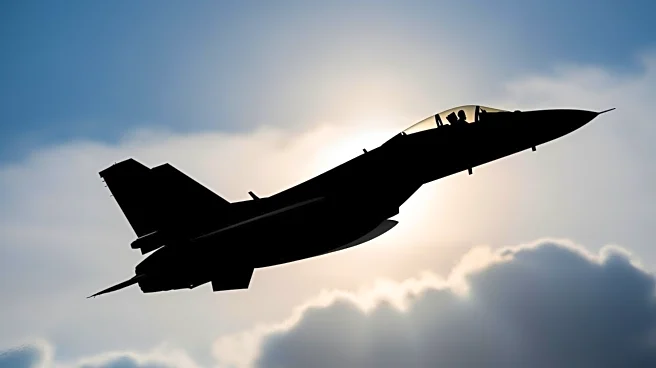What's Happening?
Ukraine and Sweden have signed a letter of intent for Ukraine to purchase between 100 to 150 Saab Gripen E fighter jets. This agreement marks the beginning of a long-term industrial partnership focused
on air defense. Sweden has previously provided extensive military aid to Ukraine, including armored vehicles and radar reconnaissance aircraft. The Gripen E jets represent a new-generation upgrade with advanced capabilities, and their acquisition is seen as a strategic move to enhance Ukraine's air force amidst ongoing conflict with Russia. The deal is not about immediate donations but rather a major defense industrial collaboration over the next decade.
Why It's Important?
The potential acquisition of Gripen E jets is significant for Ukraine's defense strategy, offering advanced air power capabilities to counter Russian aggression. This deal promises substantial opportunities for Ukraine's air force and the Swedish defense industry, while also contributing to a stronger European defense posture. The agreement reflects the need for long-term financing for Ukraine's defense and reconstruction efforts, emphasizing the importance of international collaboration in addressing security challenges. Sweden's commitment to supporting Ukraine highlights the geopolitical shifts in Europe and the growing pressure on Russia.
What's Next?
The next steps involve exploring financing options for Ukraine's defense needs, with discussions on frozen Russian assets potentially influencing the deal's progression. The European Council is set to discuss these assets, which could provide funding for Ukraine's defense initiatives. The agreement also opens possibilities for immediate Gripen deliveries from Swedish surplus, although the focus remains on radar reconnaissance aircraft for current needs. The deal is a clear political and industrial statement of intent, with potential Gripen deliveries expected in about three years.
Beyond the Headlines
The agreement underscores the strategic importance of air defense in modern warfare and the role of international partnerships in enhancing security. It reflects Sweden's shift from non-alignment to active participation in NATO, driven by regional security concerns. The deal also highlights the evolving defense landscape in Europe, with countries increasingly aligning against Russian aggression and emphasizing the need for advanced military capabilities.








